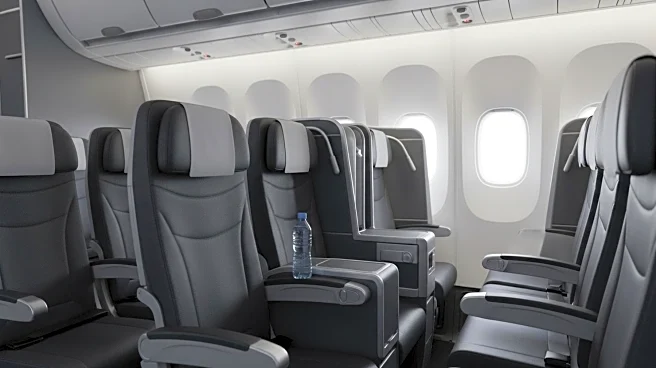What is the story about?
What's Happening?
Passengers on a Virgin Australia flight from Bali to Brisbane were forced to use water bottles after all onboard toilets stopped working mid-flight. Flight VA50 left Denpasar with one of its three toilets already out of service. The airline chose to operate the nearly six-hour journey despite limited engineering support available in Bali. Soon after takeoff, the other two toilets also failed. For the final hour and 40 minutes, none of the lavatories on the Boeing 737 Max 8 were usable. Cabin crew eventually told passengers to relieve themselves in bottles or on top of what was already in the toilets. Virgin Australia confirmed there were toilet issues but did not comment on passengers using bottles.
Why It's Important?
This incident highlights the critical importance of operational readiness and passenger safety in the airline industry. The decision to proceed with a flight despite known technical issues raises concerns about the prioritization of schedules over passenger welfare. Such events can lead to reputational damage and loss of consumer trust, prompting airlines to reassess their maintenance protocols and emergency preparedness. The situation also underscores the need for regulatory oversight to ensure airlines adhere to safety standards and prioritize passenger comfort.
What's Next?
Virgin Australia has apologized and offered travel credits to affected passengers. The airline is investigating the incident to prevent future occurrences. Regulatory bodies may increase scrutiny on airline maintenance practices, potentially leading to stricter guidelines and enforcement. The Transport Workers' Union has criticized the incident as a health hazard, which may result in calls for industry-wide reforms to enhance passenger safety and comfort.
Beyond the Headlines
The incident raises ethical questions about the responsibility of airlines to ensure passenger dignity and comfort. It highlights the need for a balance between operational efficiency and passenger welfare, potentially prompting industry-wide discussions on best practices and emergency protocols.















